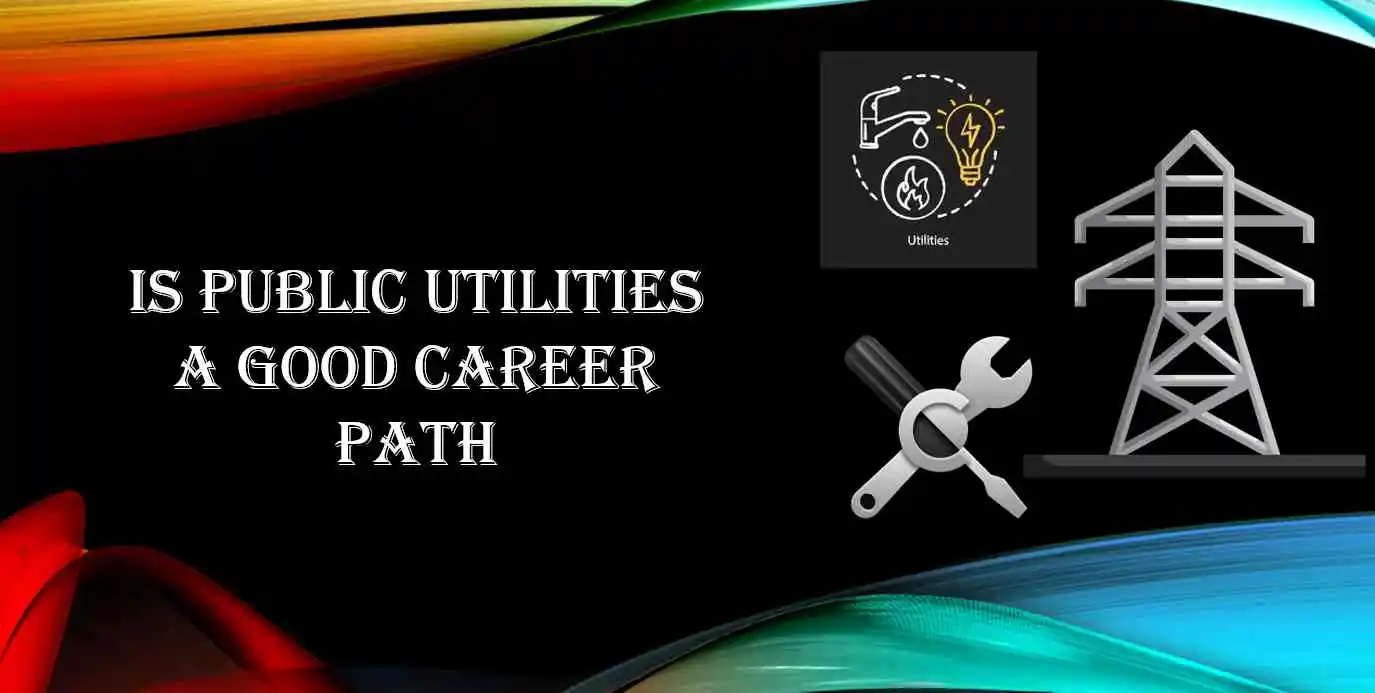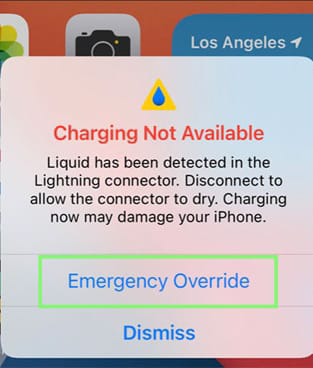Choosing a career path in today’s society may seem straightforward, but many individuals still grapple with the decision-making process. Young people, in particular, find themselves torn between entering the modern realms of freelancing and digital work or opting for the more traditional route of a conventional profession. A promising alternative that ensures long-term stability is a career in the public utilities sector.

While positions in public utilities are reputed for their competitive salaries, job security, and diverse opportunities, making an informed decision about pursuing a career in this field requires a deeper understanding. This article aims to provide you with insights into the various jobs available and the associated challenges within the public utilities industry, enabling you to make a well-informed decision about your career path.
So, what are the other job options available in the public sector? How can one build and sustain a career in service provision today, especially with numerous alternative job opportunities emerging?
Exploring a career in public utilities goes beyond just financial rewards; it offers stability and a range of possibilities. This article delves into the intricacies of the industry, shedding light on different roles and potential challenges. By gaining a comprehensive understanding of the public utilities sector, you’ll be better equipped to navigate and choose a fulfilling and enduring career path.
What are Public Utilities?
Embarking on a career in the public utility sector offers an exceptional opportunity for professional growth and advancement. This field, dedicated to providing essential services like electricity and internet access, relies heavily on a robust infrastructure. The construction, maintenance, and operation of these networks involve a significant workforce, encompassing individuals with both specialized and general knowledge.
Entities delivering public utilities operate under the scrutiny of official bodies to ensure adherence to a “universal service obligation.” Given their pivotal role in society, these organizations often maintain a significant market share. It’s worth noting that pursuing a career in public utilities demands a substantial time commitment, though the industry remains relevant for those currently seeking employment, especially in customer service roles.
Public Utilities, through a monopolistic approach, tightly controls the distribution of vital services to the entire population, securing market dominance. Historically, regulations governing public utilities spanned multiple government levels—state, local, and federal. However, the landscape has evolved with the rise of private industry and the concept of public-private partnerships, leading to the outsourcing of tasks to third-party entities.
Ensuring access to fundamental services for all citizens remains a core objective for public utilities. This dedication not only defines their role in society but also underscores their importance in sustaining a functional and interconnected community. For individuals contemplating a career in this sector, the prospect is not just about employment—it’s about contributing to the foundation of reliable services that enhance the daily lives of people across the board.
What is the Public Utilities Salary?
In the dynamic public utilities sector, employees enjoy an appealing compensation package, reflecting the industry’s crucial role in the economy. Anticipate earning a competitive annual salary ranging from $40,000 to $60,000. The highest salaries are typically allocated to managerial positions, senior electricians, and other key roles within public utilities, surpassing those of average workers.
Beyond a fair salary, employees receive additional entitlements as part of their comprehensive compensation package. These perks enhance the overall work experience, making employment in public utilities not just financially rewarding but also enriched with additional benefits.
Workplace Conditions of Employees of Public Utilities
The public utilities sector offers favorable working conditions compared to other industries, depending on specific factors. In the United States, employees in public utilities enjoy an improved distribution system and higher-quality benefits.
This translates to ample opportunities for substantial compensation and ensures their well-being. The Covid-19 pandemic has posed significant challenges for businesses providing public services, affecting field employees due to issues in healthcare and supply chain systems. Many were worried about potential impacts on their social security benefits.
It’s worth noting that post-pandemic, the situation has improved, creating a more pleasant working environment. In recent years, the focus has shifted towards addressing the challenges brought about by the pandemic, and efforts have been made to enhance the overall work atmosphere for those in the public utility industry. Workers can now look forward to a more secure and improved professional landscape as they navigate post-pandemic recovery.
How many public utilities positions exist?
The exact global count of individuals employed in public utilities is not available, but in 2021, predictions by Americans estimated that the natural gas delivery industry alone accounted for 9.8 million jobs. It’s noteworthy that the US utility industry has been expanding by approximately 0.5% annually, creating hundreds of thousands of diverse job opportunities.
Public utilities play a crucial role globally, benefiting people not only in industrialized regions but also in developing countries. Job opportunities related to public utilities have been steadily increasing in both developed and developing nations. Apart from traditional career paths, individuals can explore roles in customer service, quality control, warehouse management, supply-line engineering, and maintenance, among others, within this industry.
The impact of public utilities on the world economy is substantial. The sector offers a wide array of employment options and specialized niches, ranging from waste management to energy generation and natural gas services. Public utilities encompass a surprising variety of sectors, emphasizing the industry’s continuous growth and sustainability. Here are a few examples of public utilities:
- Electric Power Utilities
- Natural Gas Utility Sector
- Companies Providing Food Delivery
- Boarding and Care Services for Pets
- Private Security Services
These examples highlight the diversity within the public utilities sector, showcasing its potential for further expansion and development. Whether in the provision of essential services or in specialized areas like private security, the public utilities industry continues to offer a range of opportunities for individuals seeking varied and meaningful careers.
Advantages of Public Utility career
Discover a world of rewarding opportunities in the public utilities sector, where competitive compensation awaits. Jobs in this industry offer a substantial income, with salaries ranging between $52,000 and $82,000 – notably surpassing the national median wage.
What sets public utilities roles apart is the comprehensive benefits package that often accompanies them. Full-time positions in this sector commonly include perks such as paid vacation and sick days, health insurance coverage, and compensation for business trips.
Embarking on a career in public utilities requires no prior work or academic experience, making it an accessible field for those eager to start a fulfilling professional journey.
In the utilities industry, the potential for growth and increased earnings comes with broadening your horizons and enhancing your skill set. Even a few years of work experience can open doors to more lucrative employment opportunities.
What makes jobs in public utilities truly gratifying is the direct impact on communities. Knowing that your work ensures thousands of people receive essential commodities and services for survival brings a sense of job satisfaction – a stark contrast to the prevalent dissatisfaction and disengagement in many other workplaces.
If you’re seeking a career that not only offers financial stability but also allows you to make a meaningful difference in people’s lives, consider exploring the diverse and fulfilling opportunities within the public utilities sector. Join a field where your skills contribute directly to the well-being of communities and experience job satisfaction that goes beyond a paycheck.
Disadvantages of Public Utility Career
Navigating through uncertainty is a common challenge, especially in occupations within public utilities that often carry a higher risk of injury. Despite thorough training and the use of necessary safety equipment, working as a power lineman is generally considered a job with inherent risks.
Public sector jobs, crucial for societal functioning, often involve repetitive tasks. While these roles are vital, the routine nature of the work can be challenging for individuals who value originality, as it comes with certain constraints.
The continuous progress in science and technology has resulted in the elimination of numerous positions, particularly in infrastructure and public services. Jobs that exert significant physical strain may face reduced job security due to evolving demands and changes in the workforce landscape.
Duties of Public Utility as a Career Path
As a public utility worker, your role involves fulfilling specific sector responsibilities. Your daily tasks vary based on the industry, but being a utility worker generally includes:
- Ensuring fair and consistent distribution of services to the public.
- Generating utility consumption bills.
- Supervising the team of employees.
- Resolving any issues that may arise in the system.
Your key focus is on maintaining efficient service delivery and addressing challenges within the utility framework. Whether it’s overseeing distribution, handling billing processes, managing personnel, or troubleshooting system issues, your role plays a crucial part in providing essential services to the community.
What Qualifications need for Utility Workers?
In the realm of public utilities, one question stands above all: who qualifies for the job? Understanding that roles in public service and across diverse industries may demand a range of expertise is essential. From seasoned professionals to newcomers, there’s a place for various skill levels. Tasks like addressing customer inquiries, handling complaints, cleaning, warehouse management, and collecting feedback are examples that don’t necessarily demand specialized skills.
The public utilities sector welcomes applicants from diverse backgrounds and experiences. Whether you have a history in food service, organizational management, administration, data sciences, information technology, electrical engineering, or supply-line management, there are promising opportunities.
Certain roles prioritize deep knowledge and a broad skill set. Fields like engineering or specialized technical positions may require advanced education beyond high school. However, others might only call for short-term certifications or diplomas, sometimes a year or less. The educational requirements often hinge on the job’s importance in delivering essential services and its specific demands.
It’s worth noting that while a prestigious degree or recent high school graduation can be advantageous, practical engineering skills are often crucial in public utilities careers. Therefore, diligence emerges as the key trait for success in any role within the public utilities sector. Regardless of formal education, a diligent individual can thrive and contribute significantly to the industry’s varied demands and challenges.
Is a job in public utilities a Good option?
Many young individuals often worry about the financial and professional prospects of public utility jobs. However, it’s important to understand that careers in public utilities hold significant promise and benefits.
Firstly, public utility jobs play a crucial role in the global economy by creating employment opportunities in both developed and underdeveloped nations. These jobs are diverse and cater to individuals from various educational backgrounds.
One of the most appealing aspects of public utility jobs is their financial stability. They offer competitive salaries and numerous benefits, making them attractive options for individuals seeking steady income and security.
Moreover, public utility jobs provide essential services that are fundamental to the functioning of societies. From providing electricity and water to maintaining infrastructure, these roles ensure the well-being of communities everywhere.
Another advantage of pursuing a career in public utilities is the abundance of opportunities available. Whether you’re a recent college graduate or a seasoned professional seeking a change, there are roles suited to individuals at every stage of their career.
Final Thoughts
The public utilities sector is in high demand for skilled professionals at various levels within organizations. This need is prevalent across the industry, with emerging sub-industries like wind and solar energy experiencing unprecedented growth. This expansion creates diverse job opportunities, making it a worthwhile sector to explore.
Entering the public utilities field opens up numerous avenues for career advancement. The dynamic nature of the industry ensures that your skills and qualifications will find valuable applications. Rather than procrastinating, it’s advisable to start exploring potential roles that align with your credentials and long-term aspirations. This proactive approach enhances your chances of securing a position that not only suits your qualifications but also offers room for growth and development.




